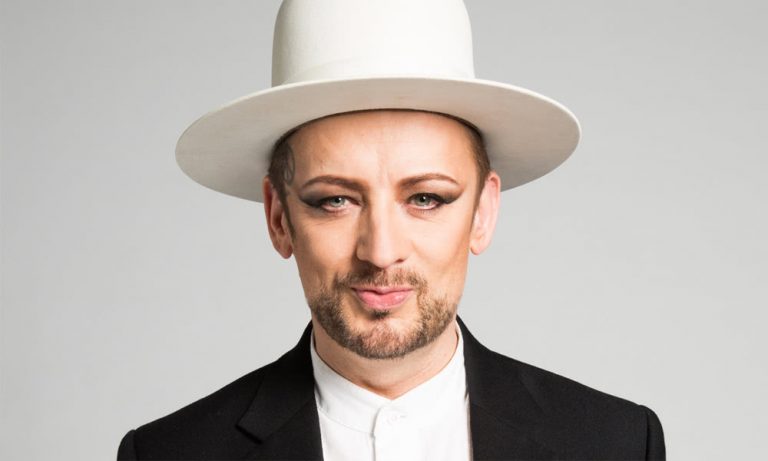As the former pop idol once again returns to the waning spotlight of our local version of talent show The Voice for a second year running, the question needs to be asked: is Boy George, real name George Alan O’Dowd, in any way fit to be acting as a role model for the young singers who appear on the program?
For those who only recall his string of colourful pop hits back in the ’80s, rather than anything he’s done a little more recently, let’s think back on his 2009 conviction for falsely imprisoning a male escort and, as reported by The Guardian, “handcuffing him to a wall, and beating him with a metal chain”.
He received 15 months in jail for the crime, with Judge David Radford telling the disgraced singer that his “premeditated, callous and humiliating” act left his victim “shocked, degraded and traumatised,” and even “deprived of his liberty and his human dignity”.
That victim, Audun Carlsen, slammed the decision by the BBC to hire O’Dowd for the U.K. version of the program, telling the NME “The BBC should be ashamed of themselves for employing Boy George after everything he did to me.”
“If a male celebrity beat up a woman with a chain, handcuffed her to a wall and threatened her with a sex toy, there would be a public outcry if he was given a high-profile job at the BBC,” Carlsen continued.
“He shouldn’t be allowed to be a mentor, they should axe him,” he added. “He is a criminal who has been to prison.”
While we won’t try to deny someone the right to earn a living once they’ve served their time (and Boy George has certainly been making the most of his newfound prominence in Australia, having toured the country three times in as many years), we imagine that Mr. Carlsen would be just as upset to hear that the singer has been granted the privileged position of mentoring young artists on national television.
Love Music?
Get your daily dose of metal, rock, indie, pop, and everything else in between.

As the Daily Mail reported last year, an interview with NZ journalist Toni Street ended abruptly when the journalist questioned O’Dowd on his conviction, with the formerly “upbeat and entertaining” singer walking away from the interview immediately.
“I will open that can of worms when I am ready, not while things are going so well for me…” he later tweeted. “I got more media from ending the interview. Job done.”
In 2017, Boy George did finally speak out on the topic – a decade after the incident occurred. Blaming the violent act on a drug-induced “paranoid” episode, he told presenter Piers Morgan, “I was prosecuted on my own evidence. I sent myself to prison.”
Asked about his crime, he remained in his seat this time, and finally apologised for his actions.
“I stopped him from leaving my apartment,” O’Dowd said, without going into detail. “It was terrible what I did, and I’m ashamed and sorry for what I did. It was wrong, and I still pay the consequences for that now.”
Those consequences clearly haven’t stopped him from securing his lucrative mentoring role on The Voice, with the incident mostly swept under the rug, and it’s important to note a double standard that’s occurred here.
We see one convicted violent offender able to enter our country to tour and work, while another – Chris Brown, a convicted domestic abuser – was denied entry in recent years to New Zealand and Australia. Similarly, rapper Tyler, The Creator has been denied entry into both countries due to the content of his lyrics alone, which is another matter entirely.
Based on these recent examples, it doesn’t seem fair that someone who has been convicted of the sort of assault that Boy George perpetrated be held up as any sort of mentor for young artists. The incident may have happened a decade back, and he may have finally offered his victim an apology, but time and contrition don’t necessarily make him any more suitable for a role like this.
Having served his time, Boy George should be free to earn a living, touring for anyone who still cares to see him. But being held up as a role model for young musicians on national television? That’s a different story.
This article was originally published on June 26, 2017.

































